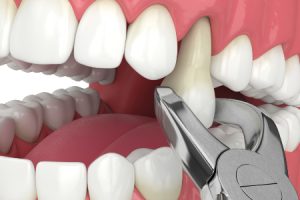 Why Tooth Extraction?
Why Tooth Extraction?
Pulling a tooth, also known as tooth extraction, is never the ideal outcome. That’s because, although we’ve come a long way in tooth replacement technology, there is no perfect substitute for the natural tooth. That’s why every dentist’s goal is to save natural teeth whenever possible… for as long as possible! However, in certain situations, there is sometimes no other choice, and tooth extraction becomes the best option for the patient.
When Is It Necessary?
Tooth Extraction for Severe Decay
When a tooth has undergone severe decay, it often results in a fracture, crack, or a large portion of the tooth missing. If treated early enough, we can reinforce the tooth with a dental crown, inlay, or onlay. However, saving the tooth may not be viable when too much tooth structure is lost. But don’t worry; there are still many restorative options to ensure you have a complete smile!
Orthodontic Treatment
Everyone’s oral anatomy is somewhat different, and some people just have too many teeth for their mouth. In these instances of severe overcrowding, we may have to extract some otherwise healthy teeth to achieve the perfect alignment patients desire.
Wisdom Teeth
Wisdom teeth typically emerge in the late teenage years, but most people don’t have room to accommodate these extra teeth. If they impact the adjacent teeth, the wisdom teeth will be surgically extracted. Other times, when people do have room to keep them, wisdom teeth often experience higher rates of cavity and tooth decay—just because they are so hard to reach in the back of the mouth. So, the wisdom teeth often end up getting extracted anyways.
Dentures, Implants, other Restorations
Before getting tooth replacements, we may recommend removing any compromised teeth that aren’t viable in the long term. Treatments like dentures may entail removing all of your remaining teeth. Other times, it’s just a few teeth surrounding the planned restoration.
No matter the reason for your tooth extraction, know that you are in good hands!
